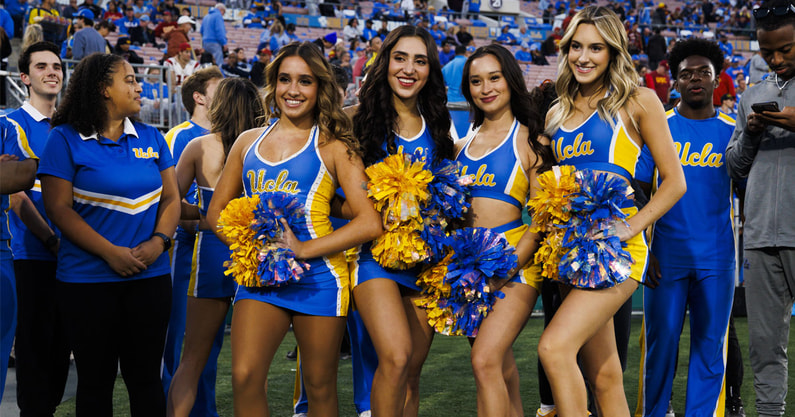NCPA requests UC Regents oppose UCLA's move to the Big Ten

As conference realignment fast approaches and the expansion of the College Football Playoff to 12 teams looms, at least some organizations are not convinced these moves are in the best interests of collegiate student-athletes. In fact, the National College Players Association penned a letter urging the University of California Board of Regents to oppose UCLA‘s move to the Big Ten.
The National College Players Association (NCPA) is a non-profit California advocacy group.
Citing several studies and various metrics, the NCPA blasted the planned move to the Big Ten as “a short-sighted money grab that will harm college athletes.”
“Not all money is good money,” wrote Ramogi Huma, the executive director of the NCPA. “The Regents should not let a handful of people sell the soul of the UCLA athletics program for TV dollars that will be spent on luxury boxes in stadiums and lavish salaries for a few.
“For all the reasons stated in this letter, the NCPA strongly urges the Regents to block UCLA’s move to the Big Ten Conference.”
Among the primary reasons to oppose UCLA’s move to the Big Ten, the NCPA cited academic harm and racial exploitation, student-athlete mental health and the benefits of increased revenue from a conference move benefiting only a select few.
NCPA cites academic, mental health harm to oppose UCLA’s move to Big Ten
Among the primary factors outlined in the NCPA’s letter to the UC Board of Regents were academic harm and detrimental impacts of the planned move to the Big Ten on student-athlete mental health.
The NCPA cited several statistics in its letter, which you can see cited below by Chris Vannini:
“UCLA’s move to the Big Ten will be detrimental to UCLA athletes’ mental healthy,” the letter stated. “Intense athletic and academic time demands will be made much worse with increased travel time demands. This is no secret and NCAA data supports this reality.”
NCPA: TV dollars benefit only a few
The other major driver in the NCPA’s letter written to oppose UCLA’s move to the Big Ten was a breakdown of the relative benefits of the financial windfall the move would purportedly bring the university and its athletics program.
Top 10
- 1New
Baseball Field of 64
Projecting NCAA Baseball Tournament
- 2
ESPN Top 25
Way Too Early hoops rankings
- 3
Pop Isaacs
Creighton guard commits to Houston
- 4Hot
Mel Kiper
2-round mock draft
- 5
Will Howard
Takes parting shot at Vols
Get the On3 Top 10 to your inbox every morning
By clicking "Subscribe to Newsletter", I agree to On3's Privacy Notice, Terms, and use of my personal information described therein.
Along with mathematically decreasing UCLA’s chances of winning conference championships, such a move could lead to non-revenue sports being cut, the NCPA notes.
“Like many other FBS colleges, UCLA does not have a revenue problem, it has a spending problem,” the NCPA wrote. “UCLA’s athletic budget deficit despite record high athletic revenues over the last 5 years reflects this. UCLA is fully capable to preserving all sports if it remains in the Pac-12.
“If the Regents are concerned that UCLA may cut sports if the Big Ten move is blocked, the Regents should block UCLA’s ability to cut sports instead of allowing UCLA to drag its entire athletic program to the other side of the country for games.”
The NCPA also noted that the majority of increased revenue in recent years as TV deals have expanded has gone directly into the pockets of a select few.
The benefits of that increased expenditure in certain areas to student-athletes are unclear.
“So, who does this benefit monetarily?” the letter openly asked. “Spending trends at UCLA and other FBS schools show that, without a doubt, this money will benefit the UCLA athletic director, head football coach, and head men’s basketball coach tremendously.
“It will also lead to the additional hiring of an ever-increasing athletic administration staff. It will benefit construction companies who will build the next gold-plated facility.
“Other than that, no one will benefit monetarily and no significant amount of revenue will leave the athletic program for other parts of the UCLA.”
You can read the letter in its entirety in the Vannini tweet embedded above.